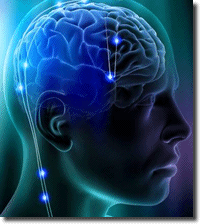
Cocaine Side Effects
Cocaine side effects can have varying effects on the user’s body and mind. Side effects of cocaine depend on a wide range of factors: purity of the drug, quantity of the drug taken, and the way that the drug enters the body. The emotional and mental state of the cocaine user can also cause different cocaine side effects on their system. Common side effects of cocaine include constricted blood vessels, dilated pupils, increased body temperature, elevated heart rate, and higher than normal blood pressure. Some users of the drug have experienced jitters or even seizures while on cocaine.
Cocaine side effects are often grave if the drug has been consumed over a long period of time. Short term usage can occasionally prove to be dangerous too depending on the tolerance level and metabolic rate of the individual.
Short Term Cocaine Side Effects:
- A feeling of enthusiasm due to an increased level of energy
- A sudden surge in your blood pressure
- Constriction of blood vessels
- Elevated body temperature
- Elevated heart rate
- Enlargement in the size of your pupils
- Reduction in appetite
Long Term Cocaine Side Effects:
- A feeling of nausea and uneasiness
- Cardiovascular disorders
- Difficulty in cocaine withdrawal
- Hallucinations
- Irritations
- Respiratory problems
- Seizures
- Uncontrollable fever
Cocaine side effects also vary depending on how the user consumes the drug. The side effects of snorting this drug often lead to nosebleeds, hoarseness, a persistently runny nose, and other associated problems. Users who inject the drug even once can succumb to severe allergic reactions, heart failure, and/or death. Frequent users of cocaine often experience agitation, depression, and insomnia. They may become increasingly paranoid, restless, and irritable. For some, these cocaine side effects evolve into a mental illness that involves hallucinations and psychosis.
Cocaine side effects will often lead to heart problems that have serious and even fatal outcomes such as:
- Dilated cardiomyopathy - enlarged heart
- Endocarditis - inflammation of the heart lining
- Heart attack, cardiac arrest, and sudden death
- Myocarditis - heart muscle damage leading to heart failure
- Pulmonary edema - fluid in the lungs
- Vascular thrombosis - clots in the coronary arteries
Cocaine side effects can have varied effects on the nervous system. Some users have experiences that are pleasurable. For example users have been reported to have feelings of excitement, increased energy levels, and euphoria. They also experience less tiredness and hunger and become increasingly social. On the other hand there could also be cocaine side effects that are just the opposite. Restlessness, nausea, vertigo, headaches, dilated pupils and irritability are some of the not so pleasant side effects.
This drug causes extreme side effects on the user’s brain. Cocaine plays havoc and interferes with the way that a lot of the chemicals in the brain respond. The neurotransmitters that are the most affected are dopamine, acetylcholine, serotonin etc. The malfunctioning of these chemical are responsible for a lot of the major complications related to cocaine abuse.
Drug addiction is the source of numerous cocaine side effects including chest pain, heart attack, irregular heartbeat, respiratory failure, heart problems, strokes, seizures, headaches, tremors, abdominal pain, and nausea. Those who smoke and/or inject the drug are in extreme danger of cocaine side effects. Smoking or injecting cocaine causes the drug to reach the user’s brain very quickly, leaving the liver no time to process the chemicals. The user’s body is left unprotected from any potential poisonous substances mixed with the drug. Because the effects of the drug are felt nearly instantaneously, the high from smoking or injecting cocaine is even more powerful than snorting the drug. Chronic users of cocaine can become malnourished due to the drug's ability to decrease appetite. All methods of taking this drug produce specific health related cocaine side effects:
- Ingesting: Severe bowel gangrene due to a reduction in the flow of blood to the intestines.
- Injecting: Severe allergic reactions. Increased risk for contracting HIV, Hepatitis, and other blood-borne diseases.
- Snorting: Chronically runny nose, nosebleeds, loss of smell, hoarseness, and problems swallowing.
- Smoking: Someone smoking crack-cocaine may have dilated pupils, sweat profusely and have burn marks on their lips or fingers from the pipes or cigarette butts. One minute they may have an extreme burst of energy and be talkative, and the next minute be irritable or quick to anger. Users may begin to sleep for long periods of time after having experienced insomnia, and to lose excessive weight due to a loss of appetite. Crack lung is an acute injury to the lungs due to heavy crack-cocaine smoking. Crack-cocaine smoke constricts blood vessels in the lungs and prevents oxygen and blood from circulating. Extreme crack-cocaine abuse results in scarring and permanent damage, i.e. crack lung. Symptoms of crack lung include fever, cough, difficulty breathing and severe chest pain. These typically occur within 48 hours of heavy crack-cocaine smoking.
Cocaine side effects are often exacerbated by the use of additional drugs. In fact, mixing cocaine with other substances makes use more likely to be fatal. The most common cause of death from cocaine overdose is respiratory failure. Respiratory failure is more common when a depressant drug such as heroin has been taken in addition to using cocaine. This combination is known as a speedball. Cocaine is also particularly dangerous when mixed with alcohol. Combining the two drugs creates a substance known as cocaethylene, which strengthens the high of cocaine and increases the risk of sudden death in the user.
Common cocaine side effects include but are not limited to:
- Anxiety
- Breathing rates
- Changes in blood pressure
- Cold sweats
- Convulsions
- Damage to lungs
- Damage to nasal cavities
- Heart rates
- Insomnia
- Loss of appetite leading to malnutrition and weight loss
- Nausea
- Possible heart attacks, strokes, or convulsions
- Restlessness and anxiety
- Swelling and bleeding of mucous membranes
- Vomiting









